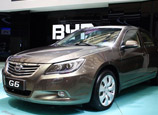
BEIJING, March 27 (Xinhua) -- An agreement among BRICS nations to establish a new development bank has been hailed as a boon to the five emerging economies as well as the global economy.
Experts say that as a key complement to existing multilateral financial institutions, the new development bank will be conducive to inter-BRICS cooperation and the steady growth and development of the world economy.
It will open up more opportunities for achieving mutual benefit and win-win results among BRICS nations (Brazil, Russia, India, China and South Africa), and these opportunities will outweigh the challenges brought by diverging interests.
"The finance ministers of the five countries have agreed that setting up the development bank is feasible and reasonable," China's Finance Minister Lou Jiwei said Tuesday after a meeting among finance ministers from BRICS countries ahead of the fifth BRICS summit in Durban, South Africa on Tuesday and Wednesday (local time).
As emerging forces on the global economic arena, the BRICS nations have enjoyed increasing shares in the world's combined GDP and trade volume, and they have started to play a more important role in improving global governance. But many believe they lack an institutional platform for cooperation.
"The BRICS nations are like scattered pearls that haven't been put on a string," said Zhao Jinping, a senior researcher with the Development Research Center (DRC) of the State Council, China's cabinet. He said he believes the BRICS bank would serve as a necessary cooperative mechanism.
The bank can provide developing countries with financing support and policy consultation in areas of infrastructure investment, trade facilitation and poverty reduction, Zhao said, adding that the establishment of a free trade zone could be a future plan.
Yuan Gangming, a world economy researcher with Tsinghua University, agreed that the BRICS bank would help stabilize the financial market by funding infrastructure construction in developing nations and smoothing possible capital market fluctuations that result from government debt issuances.
Compared with the World Bank and the Asian Development Bank, the new BRICS bank could better embody the principle of equality in operations.
Antonio Inacio Junior, Mozambique's ambassador to China, said the BRICS nations should create a credit line that is different from those of the World Bank, the International Monetary Fund and Bretton Woods institutions, as well as create a non-constraining policy in the concession of the credits.
According to Yuan, the BRICS bank would not represent the strong helping the weak. He said that knowing each other's urgent needs, the BRICS countries could deliver mutual assistance in a more equal and effective way via the bank, as well as enhance the group's standing in the global financial system.
Yuan also said that China, with its abundant foreign exchange reserves, could be expected to play a key role in the BRICS bank.
The world's second-largest economy could optimize the allocation and structure of its foreign exchange reserves if it became the bank's stakeholder, said the university researcher, adding that it would also help internationalize the yuan if yuan-denominated loans were offered by the bank.
While there has been consensus on establishing the bank, there are still challenges in how to overcome conflicts of interests among the five emerging nations.
Zhao said the BRICS countries differ in development levels and foreign trade and investment influences, and they also face diverse domestic and international problems. These factors may lead to different goals and demands, Zhao said.
For example, the BRICS nations have disagreed over some inter-BRICS trade policies, with some countries launching trade protectionist measures against others, Zhao said.
In 2012, some solar panel makers in India filed applications for an anti-dumping investigation against solar panels made in China. Later, China also launched probes over imported pyridine made in India.
"The establishment of the BRICS bank needs to undergo a process. It won't be completed within a short period of time," Zhao said.
By setting down clear-cut rules in the process of establishing the bank, the BRICS nations can move to resolve disagreements over their cooperation, the DRC researcher said.
Their common interests, according to Zhao, will stem from promoting dialogue, cooperation and coordination. "The BRICS bank, as a cooperative mechanism, should play a role in areas pertaining to trade."
According to Lou Jiwei, the BRICS' finance ministers did not discuss each country's initial investment in the bank.
"What we have now (regarding the development bank) is just a general picture," Lou said, adding that they will see whether the final details can be settled next year.

















 6.5-magnitude quake hits Taiwan
6.5-magnitude quake hits Taiwan


![]()
